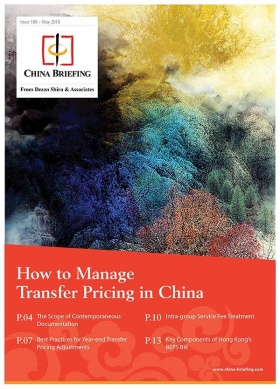China Deepens Ties with Africa, UAE Ahead of BRICS Summit
Chinese President Xi Jinping will soon wrap a five-country trip to the UAE and Africa, ahead of the annual BRICS summit in South Africa.
The trip, Xi’s first overseas since beginning his new term in March, has seen him visit the United Arab Emirates (UAE), Senegal, Rwanda, and South Africa. Xi will conclude the tour with a stopover in the island nation of Mauritius, before returning to China.
During the trip, Xi signed a range of trade and investment deals with host countries, securing greater support for his signature Belt and Road Initiative (BRI).
At the annual BRICS leaders’ summit, which takes place from July 25-27 in Johannesburg, Xi is expected to deliver statements in support of multilateralism and trade.
The trip’s progress bodes well for Xi, as it comes at a time when China is facing a variety of foreign policy challenges.
China is currently in the midst of an escalating trade war with the US, and other Western powers like Australia and the EU have also been increasingly vocal about their discomfort with China’s economic practices.
Further, China is facing backlashes to BRI plans in several countries countries, including Vietnam, Malaysia, Myanmar, Sri Lanka, and Kenya.
While Xi’s trip to UAE and Africa will not change these dynamics, it will still be a welcome reprieve from the recent bout of sustained international pressure on China.
Some of the main outcomes of Xi’s five-country trip are summarized below.
United Arab Emirates
Xi’s three-day visit to the UAE – the first by a Chinese head of state in 29 years – ended with a number of political and economic deals.
The two countries upgraded their relationship to a “comprehensive strategic partnership”, making the UAE the first Middle Eastern country to establish ties with China at that level.
China and the UAE committed to deepen their political and security ties, further cooperate on the BRI, and increase trade in oil and gas.
Total bilateral trade between China and the UAE amounted to US$54 billion in 2017.
Sheikh Mohammed bin Rashid Al Maktoum, the Vice President and Prime Minister of the UAE and ruler of Dubai, said that he hoped to double the UAE’s trade with China in the next decade.
Senegal
Xi’s two-day trip to Senegal was the first visit by a Chinese head of state in nine years, and also Xi’s first visit to a West African country.
As with the UAE, China and Senegal agreed to a “comprehensive strategic partnership”, with China committing to support Senegal’s development, and aid in anti-terror, peacekeeping, and maintaining social stability.
Most notably, Senegal became the first West African country to sign up for the BRI, thereby extending the policy’s reach.
China is Senegal’s second largest trade partner after France, with total bilateral trade worth just over US$1 billion in 2016.
Rwanda
Xi’s two-day visit to Rwanda was the first ever by a Chinese head of state, but the two countries already enjoy a significant relationship.
China and Rwanda signed 15 bilateral agreements, including infrastructure deals under the BRI label. Among them was a US$126 million loan agreement for China to build roads in Rwanda.
Chinese firms have a large presence in Rwanda, exemplified by the fact that about 80 percent of the country’s roads are built by Chinese companies, according to China’s former ambassador to Rwanda.
Trade between the two countries stood at US$238.69 million in 2017, heavily imbalanced in favor of China.
South Africa
Xi’s five-day visit to South Africa is already his third state visit to the country since assuming China’s presidency in 2013.
Xi pledged to increase imports from South Africa to lessen the trade imbalance between the two countries and to advance their “comprehensive strategic partnership”.
According to South African President Cyril Ramaphosa, China pledged to invest US$14.7 billion in the country.
During the visit, Xi will be attending a BRICS summit; the grouping consists of Brazil, Russia, India, China, and South Africa.
Bilateral trade reached US$39.17 billion in 2017, making South Africa China’s largest trading partner on the continent.
Mauritius
Xi’s stopover visit to Mauritius will be the first visit by a Chinese head of state in nine years.
Xi and Mauritian Prime Minister Pravind Kumar Jugnauth are set to discuss regional issues and ways to deepen bilateral ties.
The two countries have already begun talks on a potential free trade agreement, which, if completed, would be China’s first free trade agreement with an African country.
China is Mauritius’ largest trade partner, with bilateral trade worth about US$900 million in 2016, heavily skewed towards China.
About Us
China Briefing is produced by Dezan Shira & Associates. The firm assists foreign investors throughout Asia and maintains offices in China, Hong Kong, Indonesia, Singapore, Russia, and Vietnam. Please contact info@dezshira.com or visit our website at www.dezshira.com.
- Previous Article IIT Reform in China: What’s in the Draft Law?
- Next Article Tax Bureau to Collect Social Insurance in 2019: Time for an HR Review in China







